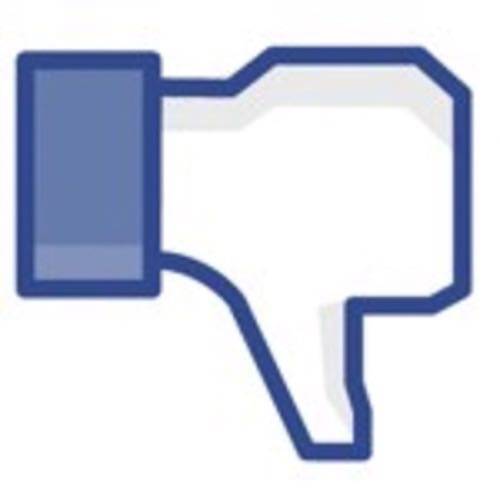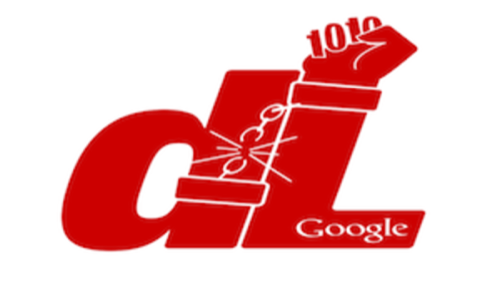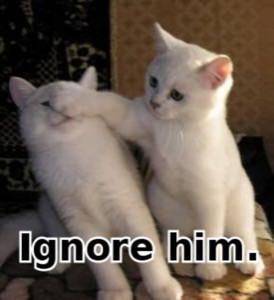The answer is to moderate our use of and dependence on social media, especially Facebook.

Frictionless sharing, the act of passively notifying social media of all manner of activity, scares the hell out of me. Not just because of the obvious privacy implications. Frictionless sharing turns up the volume on useless information and simultaneously threatens user privacy and control of online identity. Not only is Facebook becoming too central to our online discourse, it’s becoming too crapified to even be useful. We have a social media problem, and the time to turn back is now. And the answer isn’t regulating Facebook.
Editor’s note: This story is part of a series we call Redux, where we’re re-publishing some of our best posts of 2011. As we look back at the year – and ahead to what next year holds – we think these are the stories that deserve a second glance. It’s not just a best-of list, it’s also a collection of posts that examine the fundamental issues that continue to shape the Web. We hope you enjoy reading them again and we look forward to bringing you more Web products and trends analysis in 2012. Happy holidays from Team ReadWriteWeb!

Frictionless sharing is not the only problem, but it’s the straw that broke the proverbial dromedary’s back. Passive sharing is not a feature I hear other users clamoring for. The value of observing every action online is of little value to users, but of far too much value to Facebook and the lot.
Sometimes you want to control your audience, but Facebook’s privacy controls are so complex it’s never quite clear who can and can’t see your messages. You’re not assured that someone will or won’t see a message, at all.
Social Media as Game of Telephone
Social media means, more than ever, little control of your message. As an individual, you surrender control of distribution. As publisher, you surrender the notion that the receiver will have actually read the source. Too often, I’ve noticed that I garner far more feedback on articles via Google Plus and Facebook than on the site that hosts the articles.
This would be fine, except for one little problem – all too few of the commentators take the time to actually read the article or post in question. This becomes abundantly clear when you see howls of outrage in response to features on The Onion because the reader had no idea they were responding to a satirical article.
My friends in PR and marketing may complain that companies are losing control of their message. Some argue that it’s well and fine that companies lose control of their message, because it forces engagement directly with the audience. That’s true, as far as it goes, but it misses the larger point. Social media has not only wrested control of message, it’s made it incredibly difficult to ensure accuracy of the message. It’s one thing that organizations have less ability to spin, yet another when they’re faced with a 21st century game of telephone.

When a publication gets things wrong, a correction may not receive the same level of attention as an inaccurate headline or story. But when a tweet heard round the world is wrong, making a correction is next to impossible. That’s not the only problem with using a handful of social media tools as the hub of conversation and information discovery.
Expression Depends on Tools
Marshall McLuhan said “the medium is the message,” and he wasn’t wrong. How you say something, the medium that you choose, is often as important as what you say. And, of course, what you say is shaped by where you say it. Our dependence on social media means that we have to conform our messages to the tools, with the predictable deleterious results.
Just by broadcasting your thoughts on a social network, your message is shaped and colored by that medium. Twitter is immediate, short and ephemeral. It’s sending smoke signals in the hopes they’ll be received and relayed. Conversations are terse by necessity. I enjoy the challenge, sometimes, of fitting a thought into 140 characters (chalk it up to J-School damage). It’s of limited value when there’s more to share than fits in 140 characters, but by limiting its scope I think Twitter also limits the damage. No one expects to carry on all of their conversations on Twitter.
Privacy Roulette
The same can’t be said for Facebook, which would happily engulf all of our online discourse, and then some. Facebook allows for more lengthy discourse, and the ability to “like” (but not dislike) a sender’s message. Comments, however, are mandatory. It’s always somewhat unclear who will receive your message, given Facebook’s ever-shifting privacy policies and controls.
You cannot simply pick up and re-host your content on a competing network. You can take your toys and go home, but you can’t play with them there.
Call it privacy roulette. Sometimes you want your updates to be received by everyone, but Facebook opts to display them only to a sliver of your audience based on its importance algorithms. Sometimes you want to control your audience, but Facebook’s privacy controls are so complex it’s never quite clear who can and can’t see your messages. You’re not assured that someone will or won’t see a message, at all.
Google Plus is more straightforward, but the oracle in Mountain View has decreed that we must all be our literal selves online and not more comfortable pseudonymous personas. Businesses, as of yet, have no presence at all except through their spokespeople. While this suggests that communications from companies will be “more personal” it also forces the identity of a company onto the individual. If Acme Corporation hopes to have a voice on Google Plus, it must do so via its employees.
Google Plus has, in my opinion, better technical tools for expression and better privacy options, with the exception of its onerous pseudonym policies (and vigorous enforcement). Google also has well-publicized tools for extracting your data, should you choose to leave Google Plus. However, this is not the same thing as being able to extract your data from, say, WordPress. You cannot simply pick up and re-host your content on a competing network. You can take your toys and go home, but you can’t play with them there.

In all cases, you surrender control of your platform to the owner of the network. This is illustrated quite well by the collapse of MySpace. Bands (it always seems to be bands) that built up a following on MySpace cannot easily move that following to another social network, or to their own site. Companies that build up a loyal following on Twitter or Facebook (they’re not yet welcome on Google Plus) can’t move that following to a competing network.
Feeding the Beast
The problems I’ve mentioned so far would not be so bad if social media were avoidable. Companies and media are embracing, out of necessity, the intermediaries as a way to reach the audience we wish to connect with. As Adrian Short so rightly pointed out, avoiding social media is not an option for most individuals or companies. “We need to use social networks to get heard and this forces us into digital serfdom.” The right to avoid social networks, as Short says, is the right to be ignored.

Indeed, it’s a vicious cycle. If you’re not on Twitter, LinkedIn, Facebook, Google Plus or whatever comes, then your chances of being “heard” are far more remote than just a few years ago. Holding out seems futile, participating makes the problem worse. Short asks how long before social networks are essential, I’d argue they already are, but only because we’ve collectively decided that it’s OK.
You Get the Web You Deserve
Like Short, I’m not sure I have an answer except this: moderation.
We cannot depend on Facebook to be moderate in its attempts to be the center of the Web. The answer is not a kinder, gentler and less privacy abusive alternative to Facebook.
The answer is to moderate our use of and dependence on Facebook. Like moderating diet, drink, television consumption or any other pleasurable but ultimately damaging-if-done-in-excess activity it is up to individuals. If we cannot do this, the fault lies only with us.
The damage being done by excessive social media is every bit as real as the damage done by a steady diet of bacon cheeseburgers and no exercise, and just as slow to become obvious. Frictionless sharing is the cardiac event that should signal it’s time to cut back on the endless diet of bacon cheeseburgers. Stop feeding the beast, and start using social media in moderation.





















